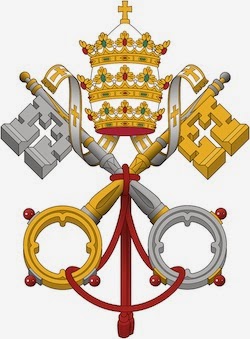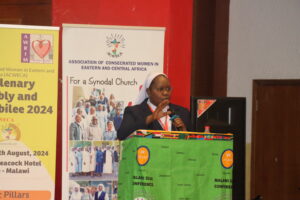VATICAN CITY: The Holy Father Sends a Letter to G-20 Summit

 “Responsibility for the Poor and Marginalized
“Responsibility for the Poor and Marginalizedmust be an Essential Element of any Political Decision”
The Holy
Father has sent a message to Tony Abbott, Prime Minister of Australia, who will
chair the Summit of Heads of State and Government of the 20 Countries (G-20)
scheduled to take place on 15 and 16 November in Brisbane.
Father has sent a message to Tony Abbott, Prime Minister of Australia, who will
chair the Summit of Heads of State and Government of the 20 Countries (G-20)
scheduled to take place on 15 and 16 November in Brisbane.
The agenda
of the meeting will focus on efforts to relaunch sustained and sustainable
growth of the world economy and the fundamental imperative, which emerged from
the preparatory work, of creating dignified and stable employment for all.
of the meeting will focus on efforts to relaunch sustained and sustainable
growth of the world economy and the fundamental imperative, which emerged from
the preparatory work, of creating dignified and stable employment for all.
Extensive extracts from the text
are published below:
are published below:
“I would ask
the G20 Heads of State and Government not to forget that many lives are at
stake behind these political and technical discussions, and it would indeed be
regrettable if such discussions were to remain purely on the level of
declarations of principle. Throughout the world, the G20 countries included,
there are far too many women and men suffering from severe malnutrition, a rise
in the number of the unemployed, an extremely high percentage of young people
without work and an increase in social exclusion which can lead to criminal
activity and even the recruitment of terrorists. In addition, there are
constant assaults on the natural environment, the result of unbridled
consumerism, and this will have serious consequences for the world economy.
the G20 Heads of State and Government not to forget that many lives are at
stake behind these political and technical discussions, and it would indeed be
regrettable if such discussions were to remain purely on the level of
declarations of principle. Throughout the world, the G20 countries included,
there are far too many women and men suffering from severe malnutrition, a rise
in the number of the unemployed, an extremely high percentage of young people
without work and an increase in social exclusion which can lead to criminal
activity and even the recruitment of terrorists. In addition, there are
constant assaults on the natural environment, the result of unbridled
consumerism, and this will have serious consequences for the world economy.
It is my
hope that a substantial and productive consensus can be achieved regarding the agenda
items. I likewise hope that the assessment of the results of this consensus
will not be restricted to global indices but will take into account as well
real improvements in the living conditions of poorer families and the reduction
of all forms of unacceptable inequality. I express these hopes in light of the
post-2015 Development Agenda to be approved by the current session of the
United Nations Assembly, which ought to include the vital issues of decent work
for all and climate change.
hope that a substantial and productive consensus can be achieved regarding the agenda
items. I likewise hope that the assessment of the results of this consensus
will not be restricted to global indices but will take into account as well
real improvements in the living conditions of poorer families and the reduction
of all forms of unacceptable inequality. I express these hopes in light of the
post-2015 Development Agenda to be approved by the current session of the
United Nations Assembly, which ought to include the vital issues of decent work
for all and climate change.
The G20 Summits,
which began with the financial crisis of 2008, have taken place against the
terrible backdrop of military conflicts, and this has resulted in disagreements
between the Group’s members. It is a reason for gratitude that those
disagreements have not prevented genuine dialogue within the G20, with regard
both to the specific agenda items and to global security and peace. But more is
required. These conflicts leave deep scars and result in unbearable
humanitarian situations around the world. I take this opportunity to ask the
G20 Member States to be examples of generosity and solidarity in meeting the
many needs of the victims of these conflicts, and especially of refugees.
which began with the financial crisis of 2008, have taken place against the
terrible backdrop of military conflicts, and this has resulted in disagreements
between the Group’s members. It is a reason for gratitude that those
disagreements have not prevented genuine dialogue within the G20, with regard
both to the specific agenda items and to global security and peace. But more is
required. These conflicts leave deep scars and result in unbearable
humanitarian situations around the world. I take this opportunity to ask the
G20 Member States to be examples of generosity and solidarity in meeting the
many needs of the victims of these conflicts, and especially of refugees.
The
situation in the Middle East has revived debate about the responsibility of the
international community to protect individuals and peoples from extreme attacks
on human rights and a total disregard for humanitarian law. The international
community, and in particular the G20 Member States, should also give thought to
the need to protect citizens of all countries from forms of aggression that are
less evident but equally real and serious. I am referring specifically to
abuses in the financial system such as those transactions that led to the 2008
crisis, and more generally, to speculation lacking political or juridical
constraints and the mentality that maximization of profits is the final
criterion of all economic activity. A mindset in which individuals are
ultimately discarded will never achieve peace or justice. Responsibility for the
poor and the marginalized must therefore be an essential element of any
political decision, whether on the national or the international level”.
situation in the Middle East has revived debate about the responsibility of the
international community to protect individuals and peoples from extreme attacks
on human rights and a total disregard for humanitarian law. The international
community, and in particular the G20 Member States, should also give thought to
the need to protect citizens of all countries from forms of aggression that are
less evident but equally real and serious. I am referring specifically to
abuses in the financial system such as those transactions that led to the 2008
crisis, and more generally, to speculation lacking political or juridical
constraints and the mentality that maximization of profits is the final
criterion of all economic activity. A mindset in which individuals are
ultimately discarded will never achieve peace or justice. Responsibility for the
poor and the marginalized must therefore be an essential element of any
political decision, whether on the national or the international level”.
SOURCE: Vatican Information Service, (VIS) 11 November 2014


